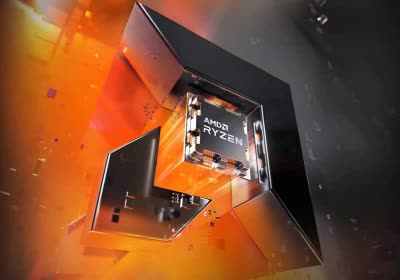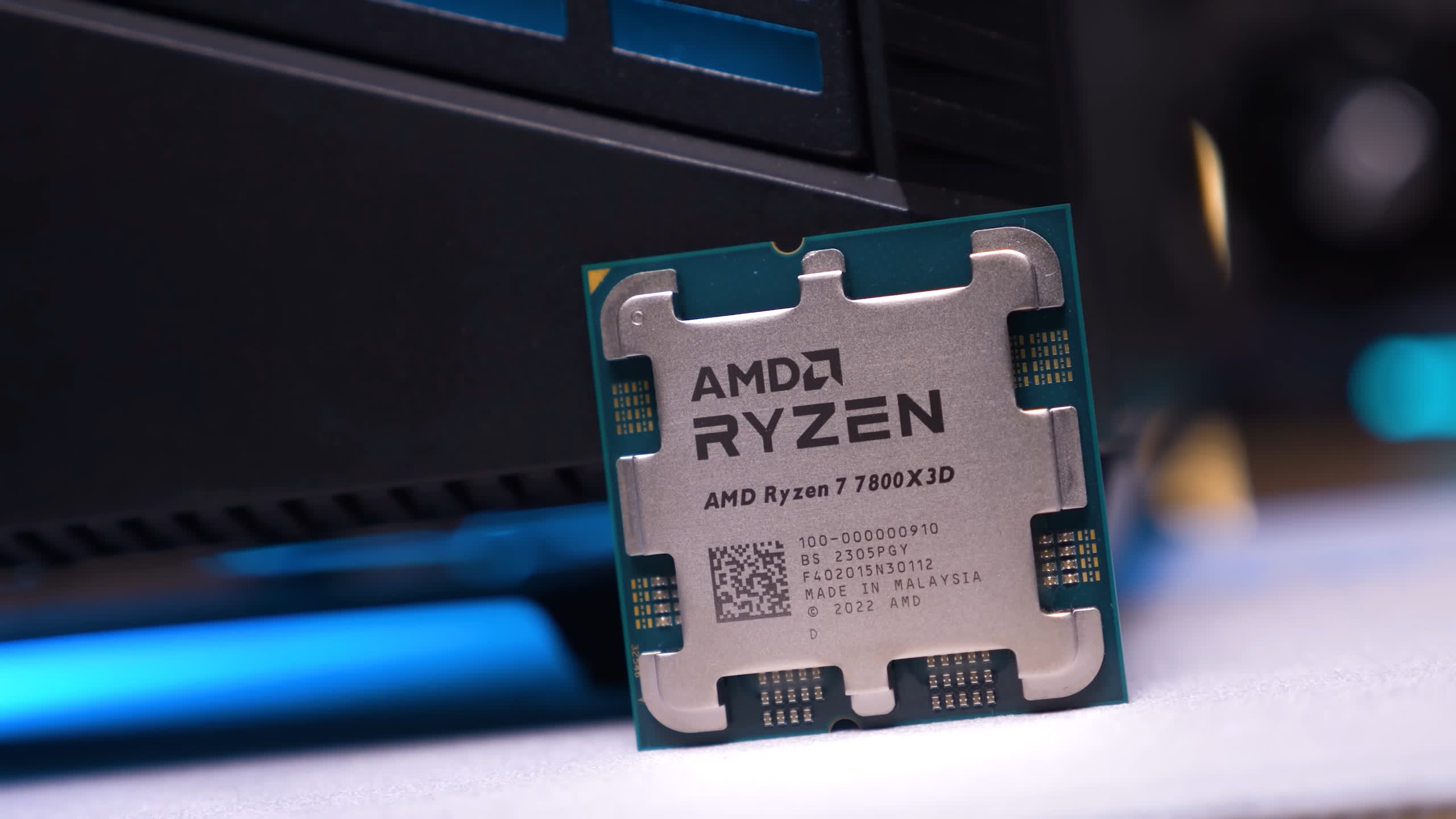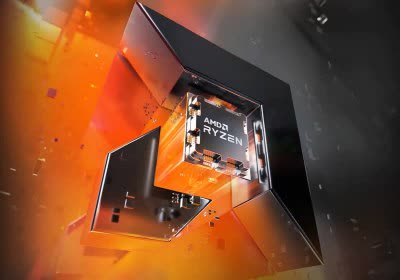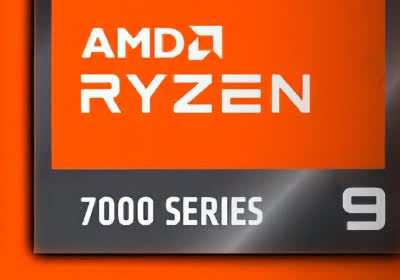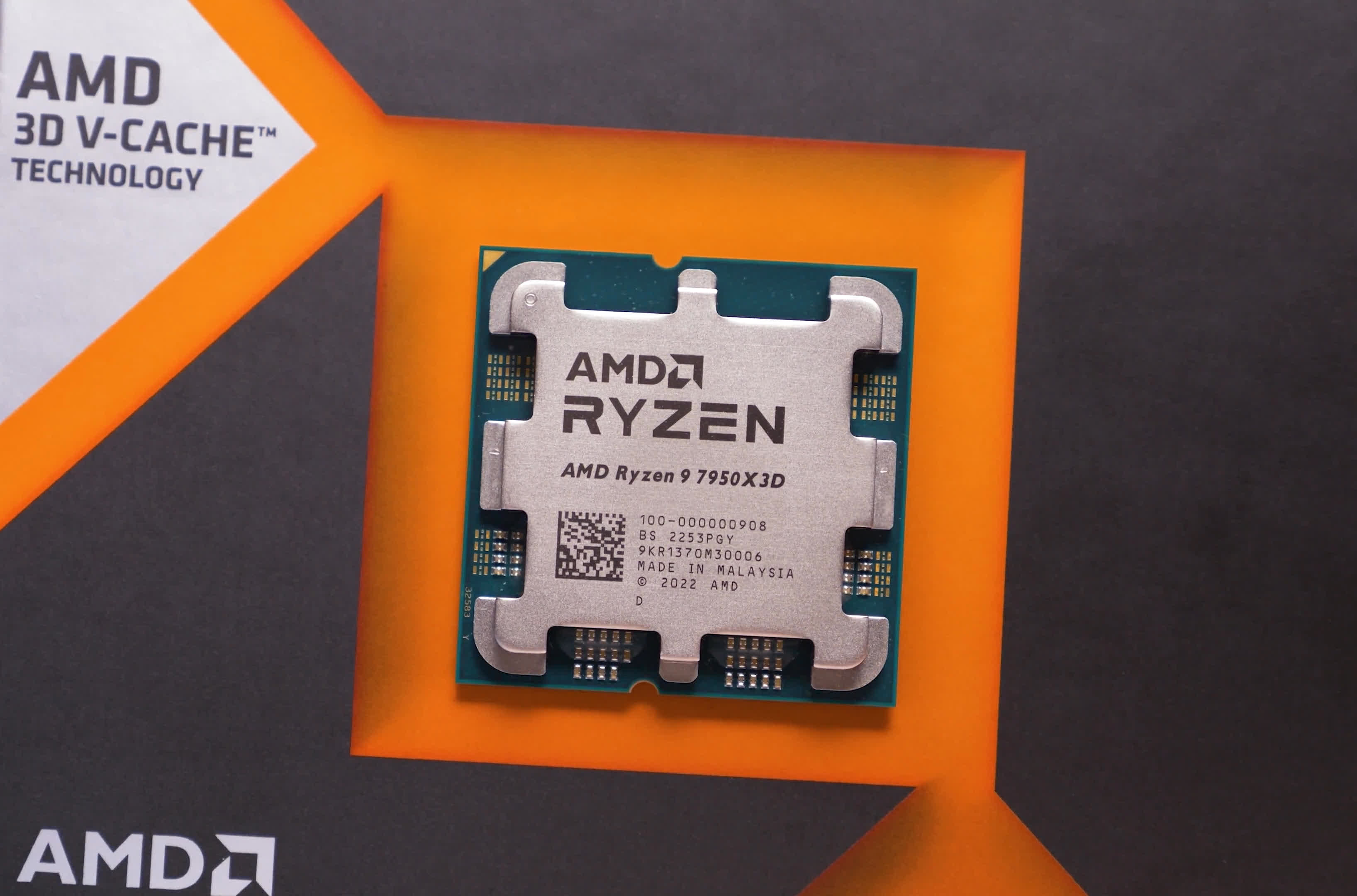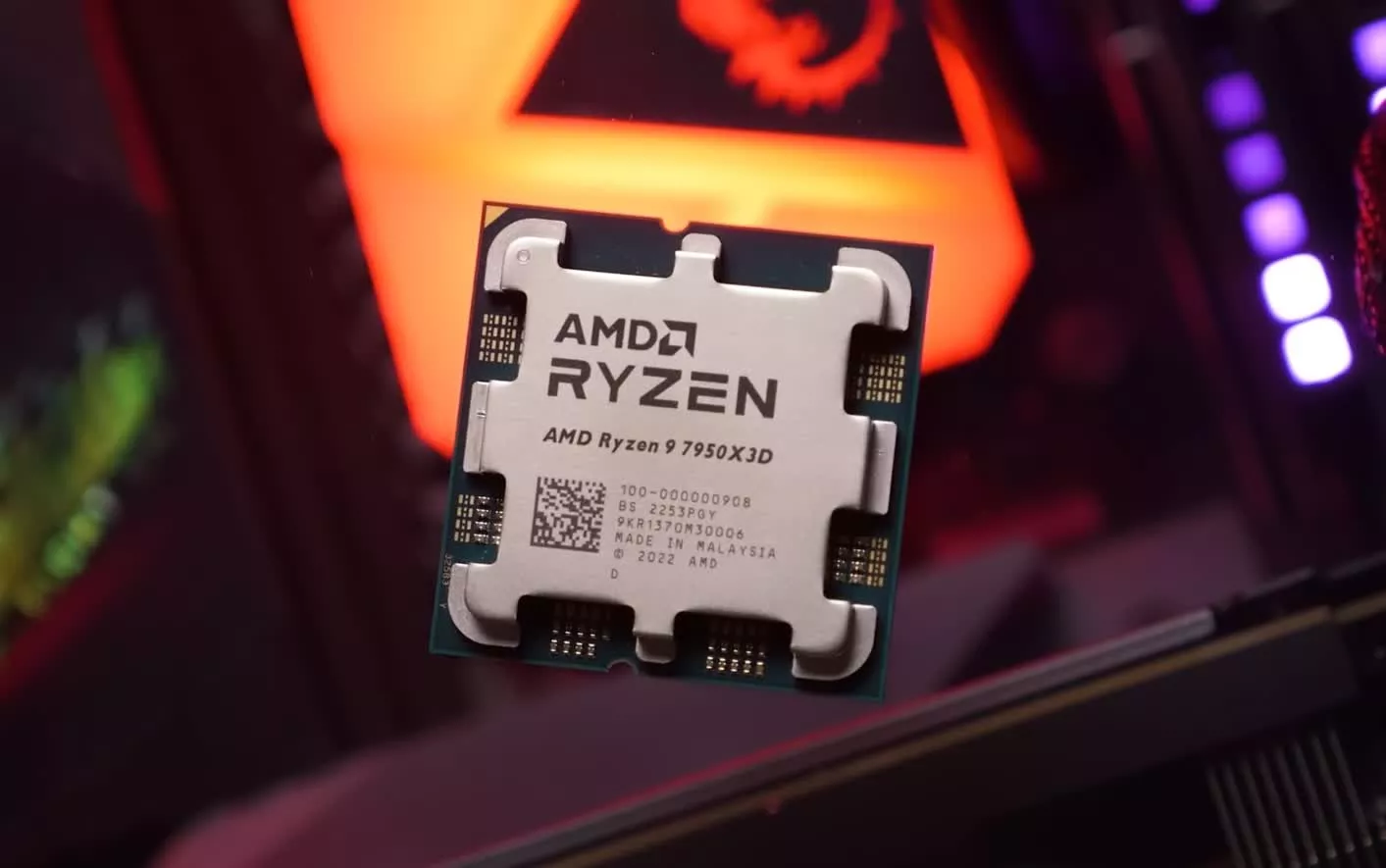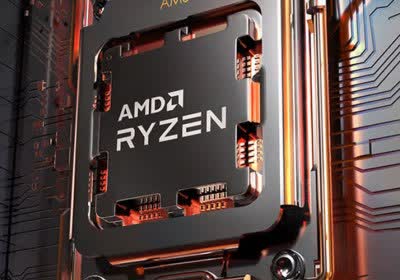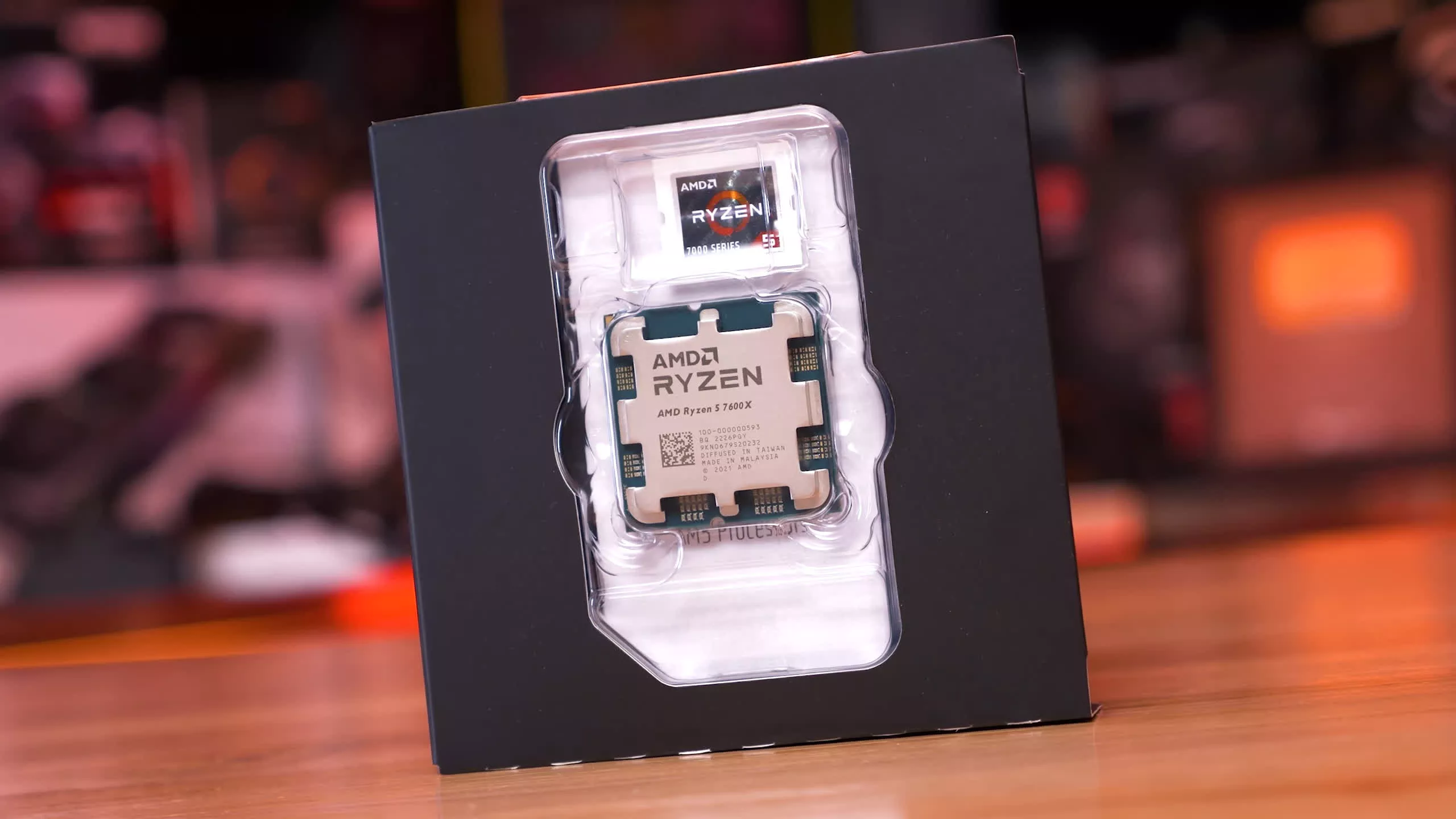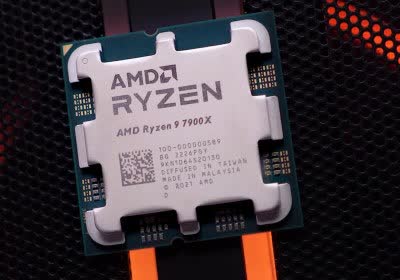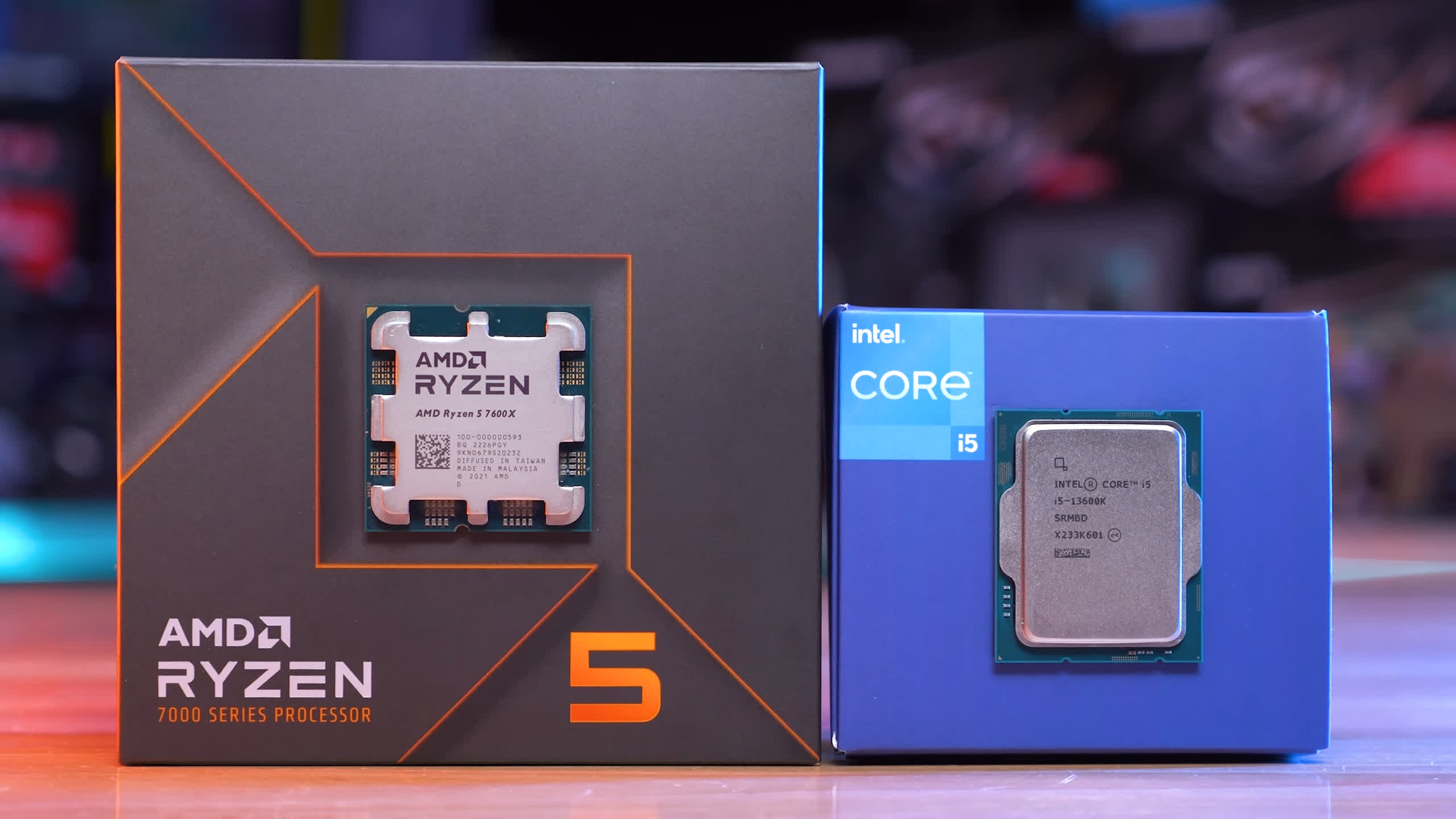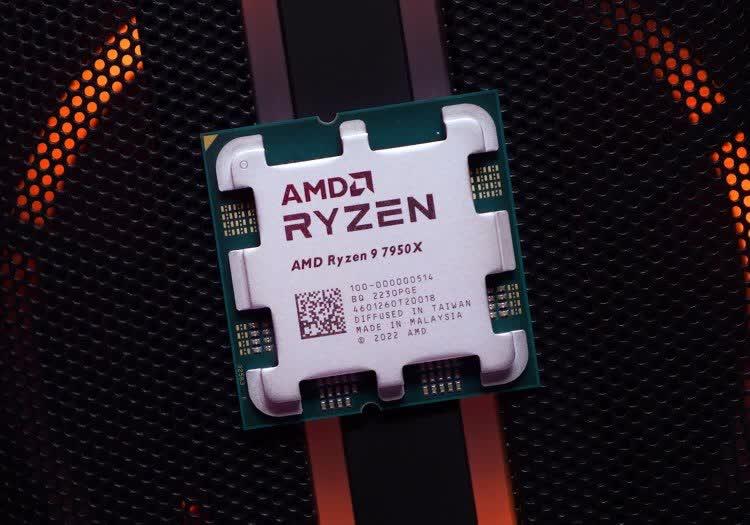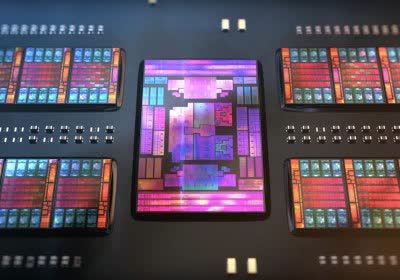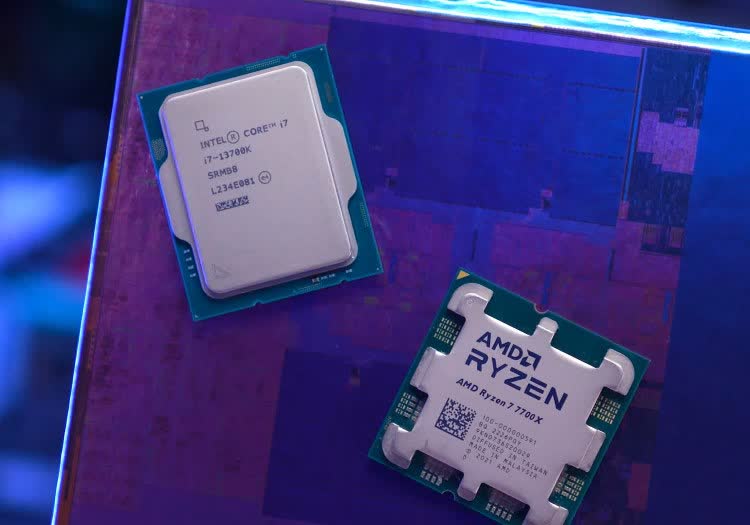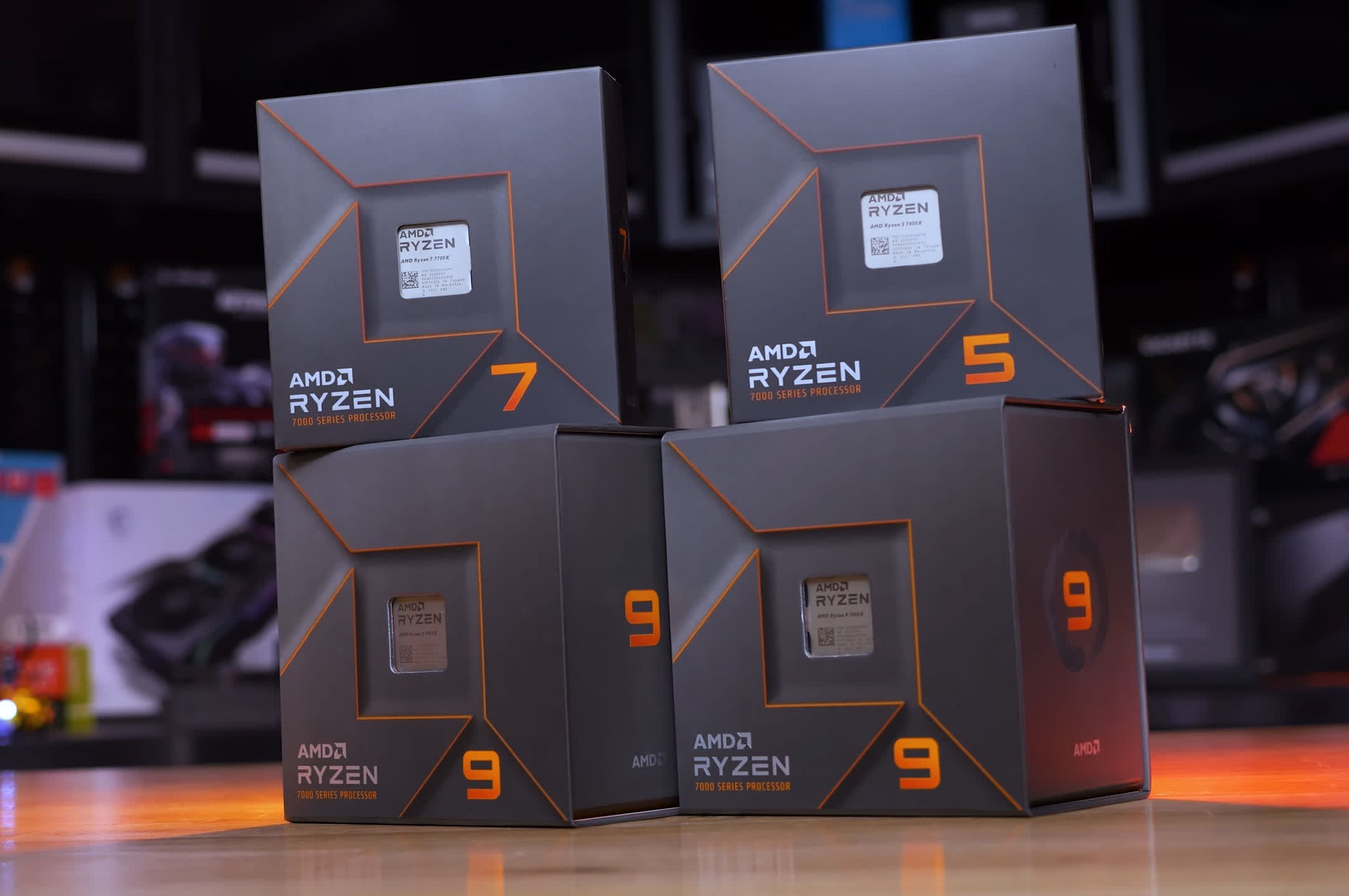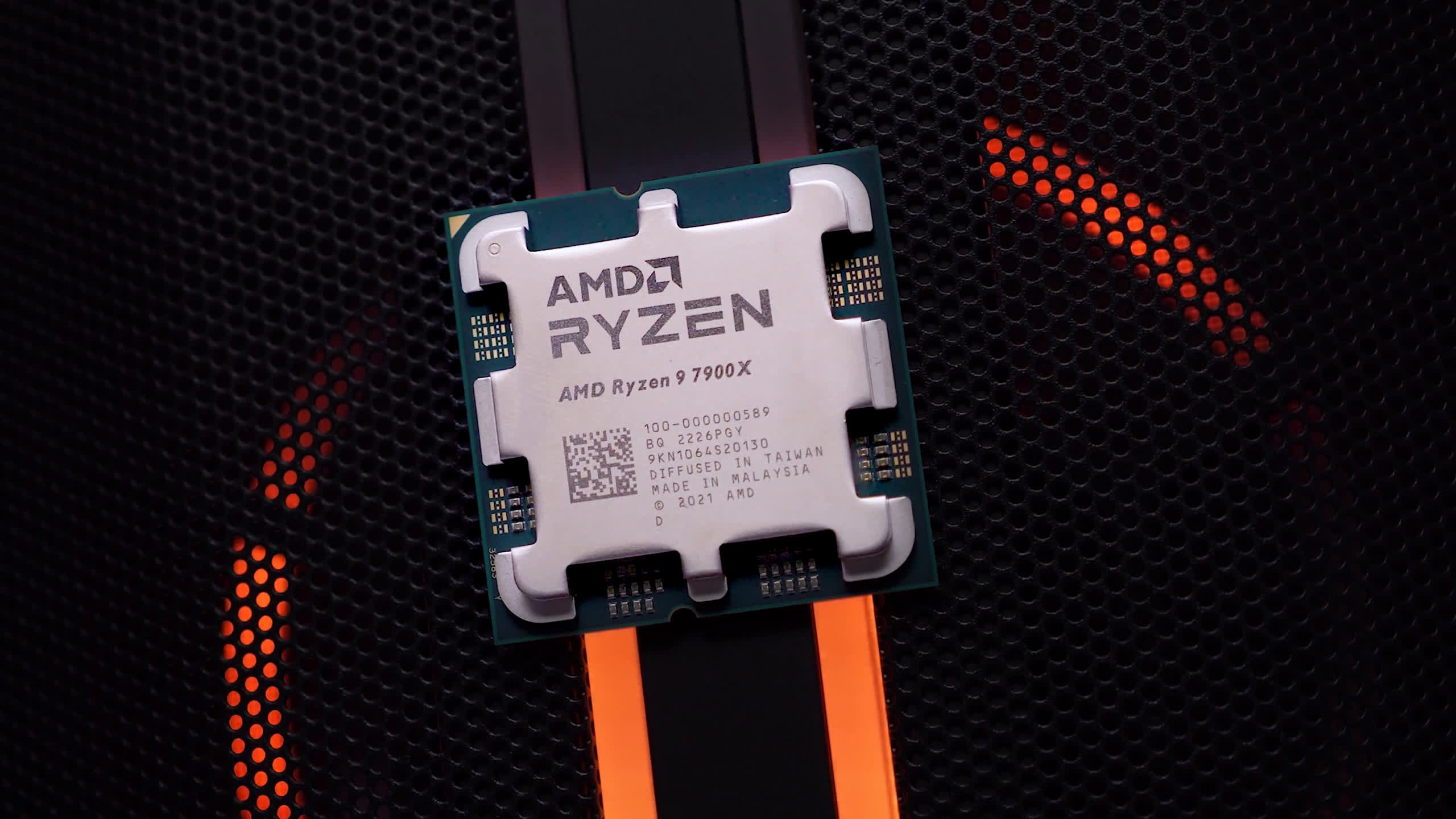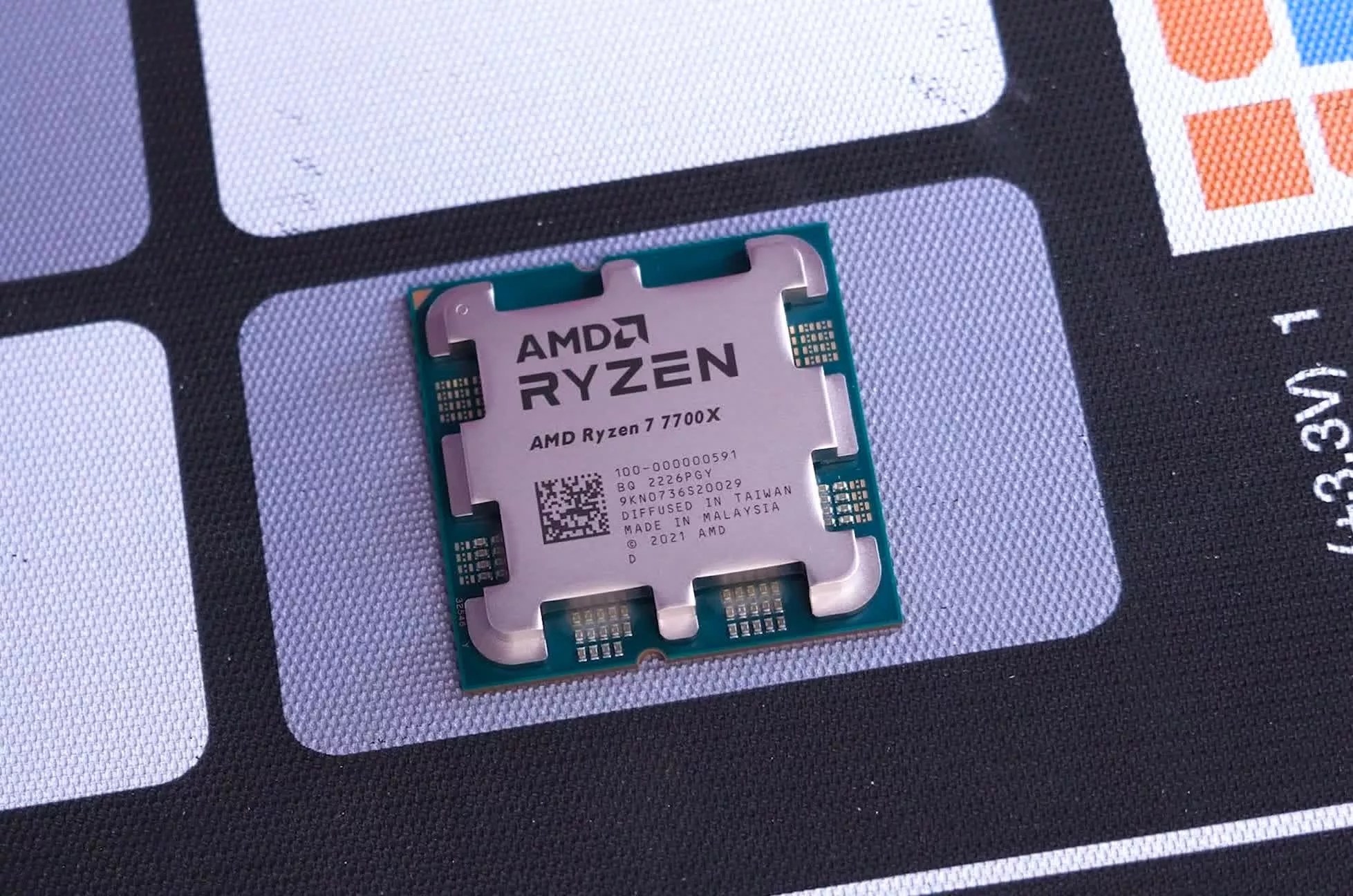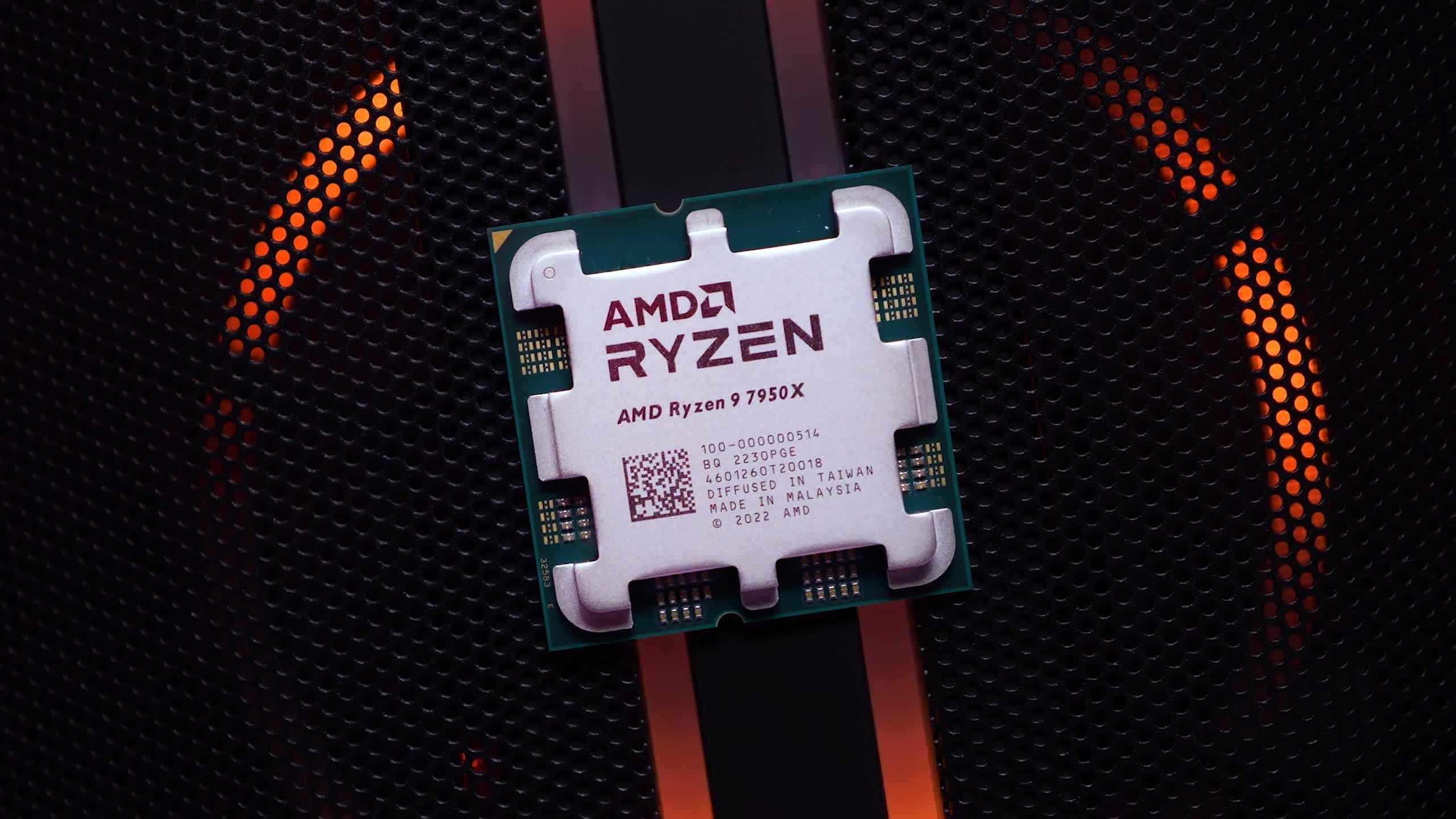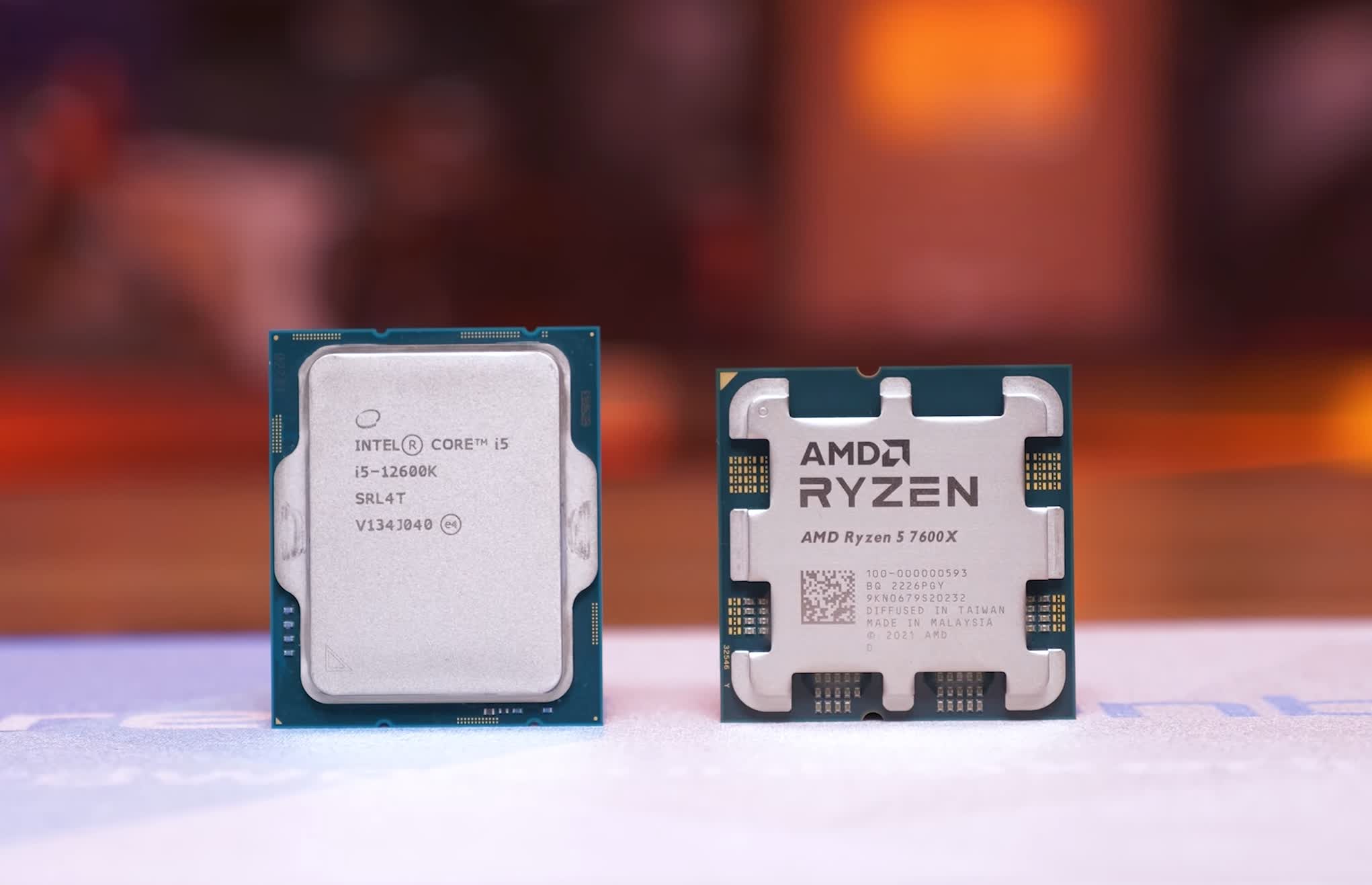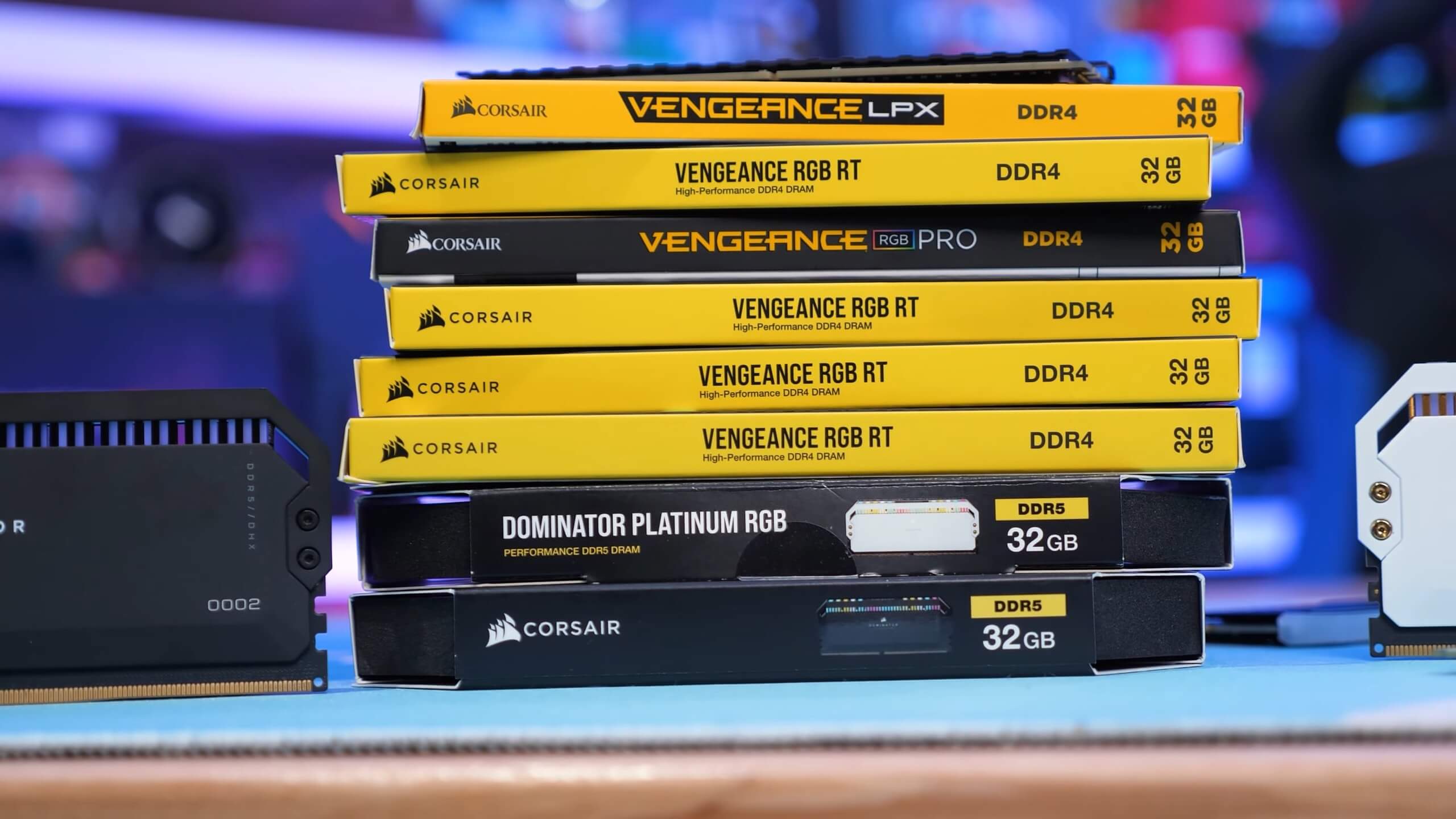Leaked benchmarks reveal mid-range AMD Ryzen 8600G iGPU outperforming the GTX 1060
AMD Ryzen 7 7800X3D vs 5800X3D: Zen 3 or Zen 4 3D V-Cache
If you are building or upgrading a Ryzen gaming PC, should you go with the more affordable 5800X3D, or go all out with the 7800X3D? Today's review plans to answer both of these questions and more.
AMD Ryzen 7040 'Phoenix' laptops tipped to launch in late April
AMD adds more labels to its new (and somewhat confusing) laptop CPU naming system
In a nutshell: Team Red unveiled a new naming scheme for laptop processors last year to reduce ambiguity and imbed more information in its CPU numbering. New documentation indicates that AMD needs more signage to ensure customers can identify the processor architecture they're purchasing.
AMD Ryzen 9 7950X3D Memory Scaling: Does DDR5 Performance Matter?
Pairing fast RAM with a top-end CPU is a logical choice, but what happens when that processor is a Ryzen 9 7950X3D with 128 MB of cache? Let's find out!
AMD Ryzen 9 7950X3D Review: Gamers, Don't Buy This One!
With extra L3 cache and lowered clocks for less heat, AMD is trying to make the Ryzen 9 7950X3D the best CPU for all scenarios. But how well does that work in reality?
Ryzen 5 7600 vs. Ryzen 5 5600: CPU and GPU Scaling Benchmark
At which point does the jump up from the affordable Ryzen 5600 to the relatively expensive Ryzen 7600 makes sense? That's what we'll be testing in this CPU and GPU scaling benchmark.
AMD patches botched firmware that disabled cores on Ryzen 5 7600X
Ryzen 7 5800X3D vs. Ryzen 5 7600X: 50+ Game Benchmark
We take fan favorite Ryzen 7 5800X3D and compare it head to head with the new Ryzen 5 7600X in over 50 games. Yes, the 5800X3D is impressive, but can it counter the advantage of going AM5?
Three Ryzen 7000 X3D CPUs are reportedly on the way, no 6-core variant planned
AMD Ryzen 5 7600X vs. Intel Core i5-13600K: 54 Game Benchmark
Time for a massive benchmark comparison between the Ryzen 5 7600X and Core i5-13600K, covering 54 games across three resolutions using the GeForce RTX 4090.
Zen 4 CPU prices fall dramatically, Ryzen 9 7950X is now down to $554
What just happened? Since launching in September, AMD's Zen 4 processors have struggled to sell against Intel's Raptor Lake due to price and compatibility disadvantages. Team Red has addressed the situation with deep price cuts around the globe, but it's unclear if these are permanent drops or just holiday deals.
Zen 4 X3D processors may be limited to Ryzen 5 and 7, no Meteor Lake processors in 2023
AMD announces Epyc 9004: up to 96 cores for around $12,000
Intel's comeback: Raptor Lake sales look stronger than AMD's Zen 4
In context: A couple of weeks ago we posted an update looking into how AMD's Zen 4 CPU launch fared and today we're back with a similar preliminar analysis, but this time looking at Intel's Raptor Lake launch. These are the two big CPU launches of 2022 and after examining some of the numbers, it's pretty clear that one release has gone a lot better than the other.
AMD Ryzen 7000 is off to a slow start, Zen 4 sales are not good
The big picture: As you know, AMD launched their new Zen 4, Ryzen 7000 processors about two weeks ago now and hopefully you've all seen our reviews of the four models. There are a number of strengths to these new parts, including performance – however, AMD is facing a bit of a hurdle since their introduction, and that is convincing people to actually buy them.
Is AMD Zen 4 Too Hot for a Box Cooler? Ryzen 7600X + Wraith Spire Tested
A big point of contention with Zen 4 CPUs is that they run very hot. AMD says it's all by design, but how about we throw a basic air cooler to see if the 7600X throttles when under load?
AMD Ryzen 9 7900X vs. Intel Core i9-12900K
The Ryzen 9 7900X is a 12-core, 24-thread Zen 4 processor priced to compete with the Core i9-12900K. With that many cores, is it only a productivity monster or can it also compete with the best in gaming?
AMD Ryzen 7 7700X Review: Faster than Core i9?
The Ryzen 7 7700X is arguably the most interesting Zen 4 CPU for PC gaming: it's an 8-core, 16-thread chip using a single CCD, which should mean it's going to deliver the best performance.
AMD Ryzen 9 7950X Review: The New Performance King
The Ryzen 9 7950X is the new performance king and the jack of all trades, apart from maybe power consumption and pricing, of course. The Zen 4 flagship can do everything exceptionally well.
AMD Ryzen 5 7600X Review: Mainstream Zen 4
The new Ryzen 5 7600X is a 6-core/12-thread CPU that replaces the popular 5600X, built on TSMC's 5nm process, it clocks up to 5.3 GHz, packs 32MB L3 cache, DDR5 support, and a 105W TDP.
We Bought the Cheapest DDR5 RAM Modules We Could Find, Are They Any Good?
We've got to admit that when we purchased these cheap 8GB DDR5-4800 memory sticks, we did so expecting them to be pretty bad and much slower than our DDR4-3200 memory in most instances. But, surprise...

